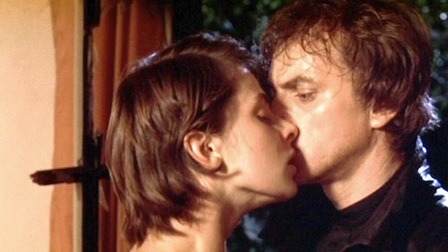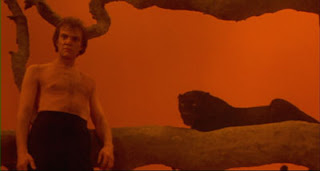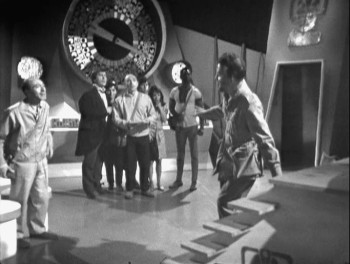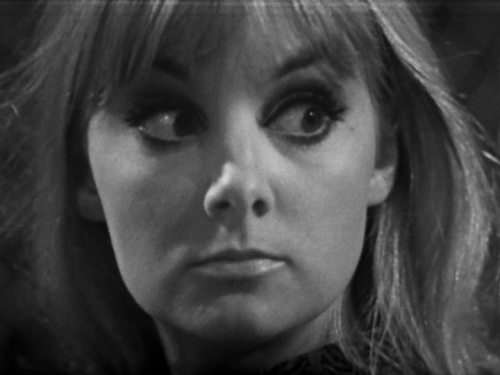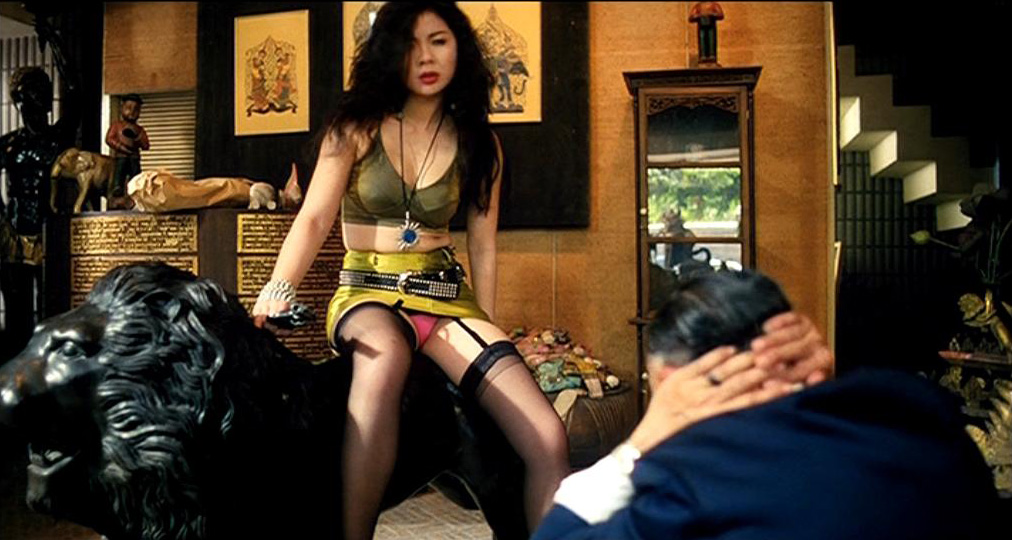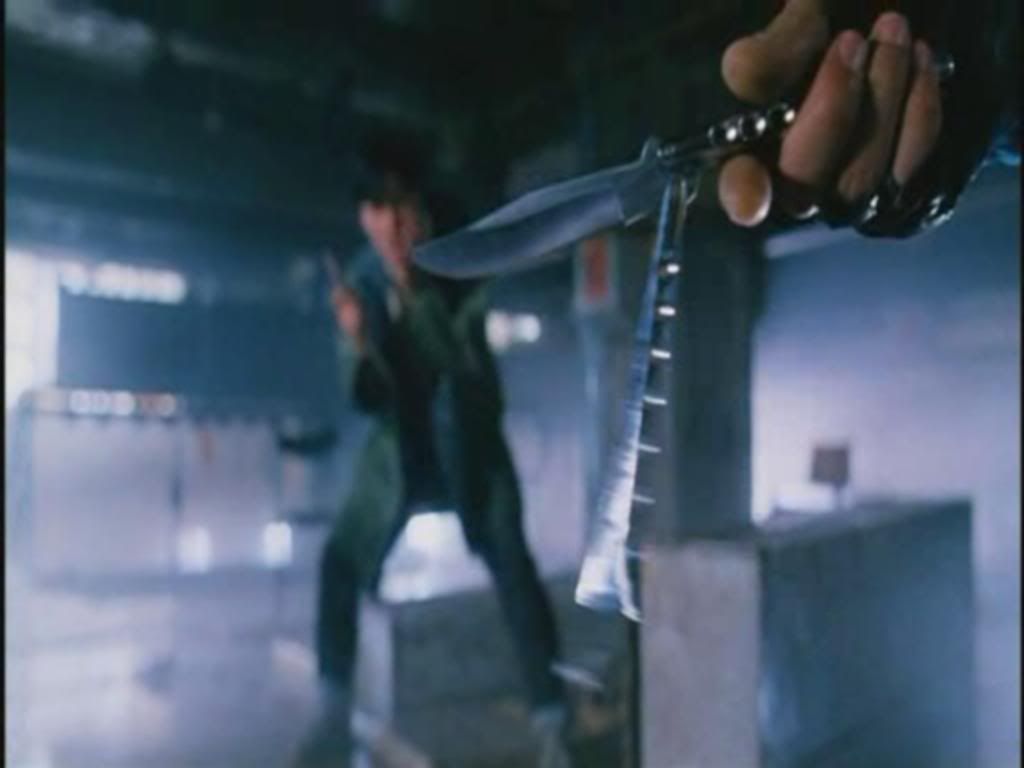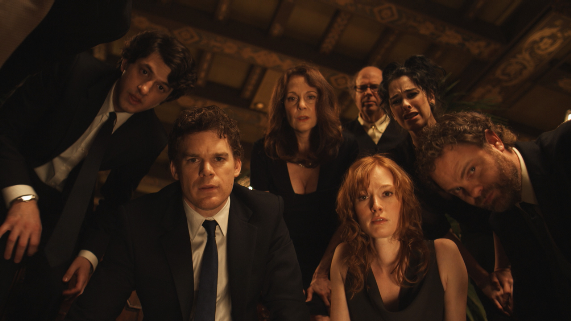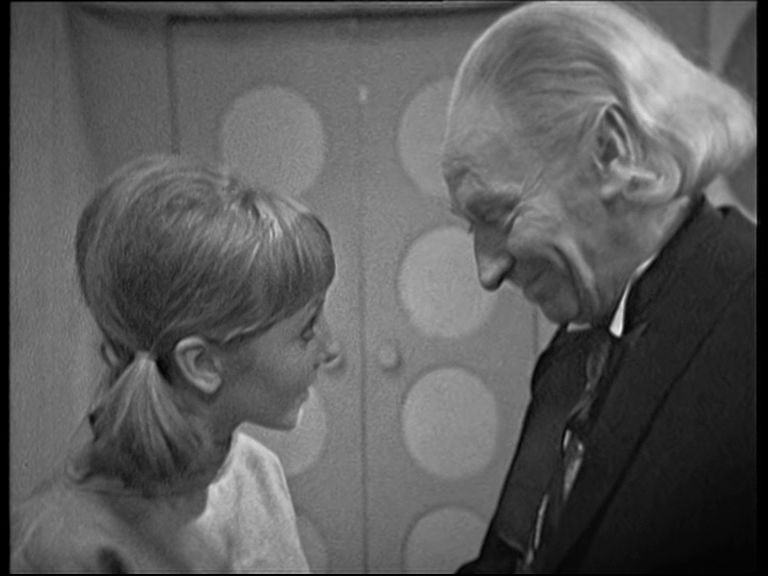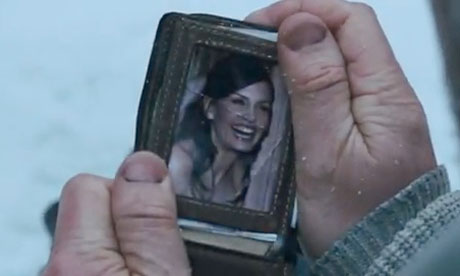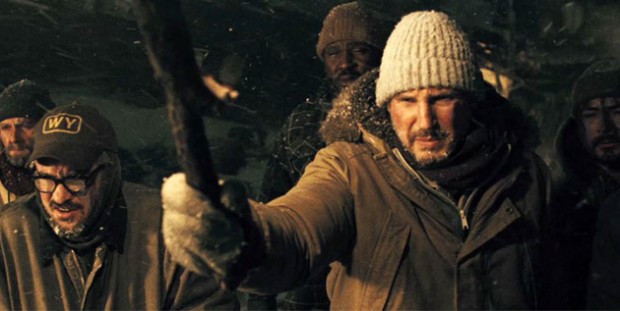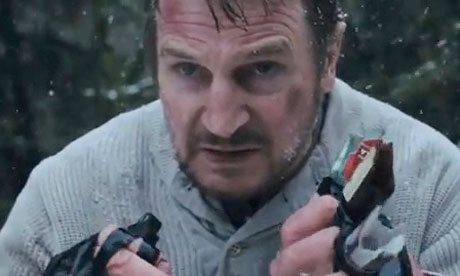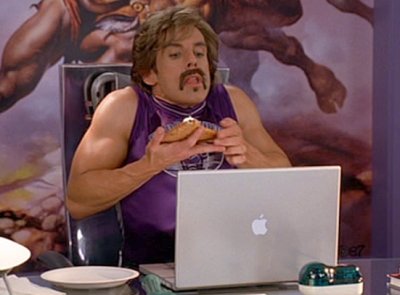 |
| "C'mon! Do I look like a villain? I'm so charming in my forced smile at the unfair charge of my nefariousness...." |
1) The biggest fundamental problem with this film is that this is a Modern Action Movie that is serving as a sequel to an effective and faithful adaptation of a classic TV Show that is one half action movie and one half mystery. With that mystery part gone, the film itself becomes unbalanced...
2) ...which means that we never buy into the presence of Robert Downey Jr.'s Royce. Even though Downey does his best to give Royce enough dimension in the earlier part that his 'surprise' turn in the final act is a surprise, we know by his arrival that we're in a Modern Action Movie. That means The Government Can't Be Trusted, and any one assigned to Tommy Lee Jones' Gerard is Suspect.
3) And speaking of Royce...you know the scene where he uses the eyeglasses to get out of the handcuffs, the scene that supposedly gains him Gerard's respect? We know from the previous film how smart Gerard is. He pegs Royce as someone interested in hindering his investigation a minute of so earlier...and yet this parlor trick is enough to throw him off the trail? No. F'in. Way. In the interest of throwing us off of Royce's scent, the script effectively devalues Gerard as an intelligent and cagey character.
| "I ain't jumping off no roof. Do I look like Harrison Ford?" |
4) One of the strengths of The Fugitive was that we spent enough time in the first act with Dr. Kimble that we believed in his innocence, and even if we suspected otherwise his actions proved it. Wesley Snipes' Mark gets only cursory screentime so we don't get a backstory enough to trust him, and his actions are suspect in that first act. We're asked to trust that Mark is innocent because, well, he's being hunted down by Sam Gerard and that's what happened the last time, right? Right?
5) What was up with the relationship between Gerard and Kate Nelligan's Walsh? The whole through line between the two comes off as so...weird, right from her making that strange comment about Gerard taking the hot Chicago newswoman to a party to her out-of-nowhere admission of love for him. It's like we're supposed to surmise that they--what? Had a relationship in the past? Were married?--and yet, the script by John Pogue seems afraid to admit they're anything other than co-workers...so the film gets this strange vibe right from the start.
6) The whole conspiracy angle suffers because it's waaaay more complicated than the whole medicine tampering storyline in the original. And, since we get the idea that this is A Typical Modern Action Movie very early on, we know the two Government wanks who puts Royce on Gerard's team is In On It, the bulk of the New York stuff comes off as just running around eating up time.
7) While I enjoyed seeing the original team backing up Gerard again, the killing of Tom Woods' Newman is on the whole gratuitous. Newman is not as vividly drawn as either Daniel Roebucks' Biggs of Joe Pantiliano's Renfro, so we're not as upset or shocked when he's shot.
 |
| Because the thing THE FUGITIVE was really missing was a generic French Hot Girl.... |
8) I wonder if the film would have held up better if the script didn't hew so close to the original's plot. The disaster freeing the fugitive, the revelation he's innocent, the perimeter search announcement, even Tommy Lee Jones wearing a silly outfit in pursuit of a fugutive...all of these things only serves to remind us how much better the original is. Maybe if the producers and scriptwriters had chosen to go down another pass--what if, let's say, the fugitive wasn't innocent but an outright pure-D-mean master criminal. Wouldn't that be cooler?
9) Don't get me wrong--Tommy Lee Jones tries his best to keep this film from falling apart, and the chemistry between him and his staff from the previous film (especially Pantaliono) is still strong. But there's only so much good will can do. This script is so intent on playing it safe that they give Jones nothing new to chew on, and as such Jones eventually sinks into going through the motions.
10) Considering how the original film was informed by its Chicago setting, director Stuart Baird falls down a lot when it comes to the locations. Until Kentucky is mentioned by name, a large chunk of the second act seems to take place in some redneck limbo, and if I hadn't recognized the little pocket park Snipes places his call to his French Hot Girl to I wouldn't have known this was New York until much, much later. It's just another little contribution to the overall sense of genericness this film has.
Overall...not very good at all, this sequel fails its star by never allowing him, the script or the direction to stray from anything other than generic Action Movie-ness.



